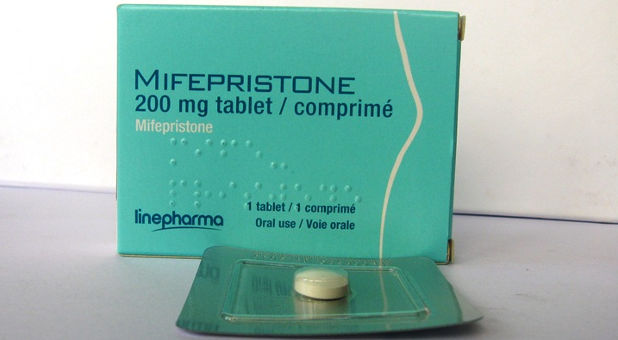On Thursday, the New York Times published a guest essay from feminist writer Jessica Valenti entitled “The Anti-Abortion Movement Can’t Use This Myth Anymore.” Valenti applauds the FDA’s new policy of allowing women to obtain chemical abortions without a doctor’s visit for the rest of the COVID-19 pandemic. She is confident that expanded access to chemical abortion drugs will provide ample evidence of their safety. As such, if the safety of chemical abortions is well documented, Valenti argues that future pro-life efforts to limit access to chemical drugs in the name of protecting women’s health can be easily dismissed as hypocritical.
In her essay, Valenti exudes plenty of confidence, but provides readers with precious little evidence to support her position. She confidently states that chemical abortions are “safer than over the counter ibuprofen.” She cites one study which appeared in the journal Contraception in 2012. However, a 2015 study that appeared in the American Journal of Obstetrics and Gynecology, which used comprehensive data from California’s Medicaid program, found that chemical abortions had four times the complication rate of first-trimester surgical abortions. Additionally, as of 2018, the FDA has attributed 24 deaths and over 4,000 adverse events to chemical-abortion pills. Since abortion reporting requirements in the United States are weak, the actual numbers are likely higher.
Valenti goes on to say telehealth chemical abortions are safe. However, Valenti fails to cite a single study to back up her assertion. Furthermore, the existing research provides little evidence of the safety of telehealth abortions. A February BJOG: An International Journal of Obstetrics & Gynaecology study failed to property separate women who obtained telehealth abortion from women who obtained abortions under medical supervision. Furthermore, a March 2021 Contraception study found that within a month of the abortion, 6 percent of women who had telemed abortions made visits to emergency rooms or urgent-care centers for reasons related to the abortion. Other research shows that the emergency-room visit rate for abortion-related reasons is about 2.6 percent.
REACH PRO-LIFE PEOPLE WORLDWIDE! Advertise with LifeNews to reach hundreds of thousands of pro-life readers every week. Contact us today.
Of course, the absence of actual studies does not appear to bother Valenti in the slightest. She engages in a strategy often used by supporters of legal abortion — predicting future studies will support her narrative! In her New York Times essay, she states the “F.D.A.’s new rule . . . will soon arm pro-choice organizations with more studies reiterating the safety of medication abortion and show how shipping pills poses no risk to patients.”
I hate to break it to Valenti, but supporters of legal abortion have not been very good at predicting the future. Prior to Roe v. Wade supporters of legal abortion said that legalizing abortion would reduce the out of wedlock birthrate. Of course, the out-of-wedlock birthrate has continued to increase since that time. As recently as 1979, NARAL was arguing that legalizing abortion would reduce the incidence of child abuse. However, data from the U.S. Statistical Abstract, indicates that deaths due to child abuse increased by 400 percent between 1972 and 1990. Finally, the predictions that the removal of Planned Parenthood from the Texas family-planning program in 2010 would cause unintended pregnancies to soar in the Lone Star State clearly did not come true.
In reality, there are plenty of reasons why unsupervised chemical abortions will pose serious health risks to women. A chemical abortion could be fatal to a woman with an ectopic pregnancy. Additionally, a woman obtaining a chemical abortion might underestimate the gestational age of her unborn child. That could also pose serious health risks. Even one of the companies that sells chemical-abortion pills online acknowledges these risks on their website. Overall, pro-life concerns about the safety of unregulated chemical abortions are not hypocritical. They are rooted in the best interest of both mother and child. Contrary to Valenti’s assertion, future research will likely bear this out.
LifeNews Note: Michael J. New is a Research Associate at the Busch School of Business at The Catholic University of America and is an associate scholar at the Charlotte Lozier Institute. Follow him on Twitter @Michael_J_New








